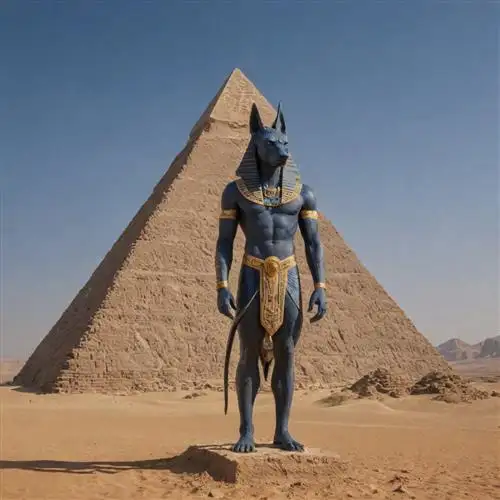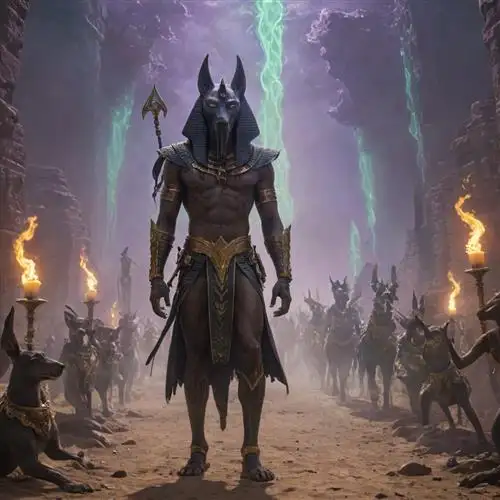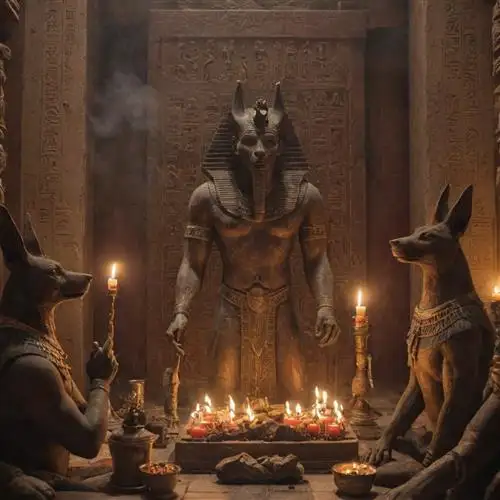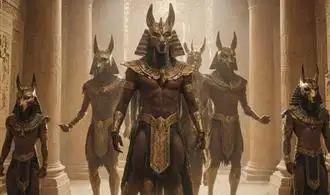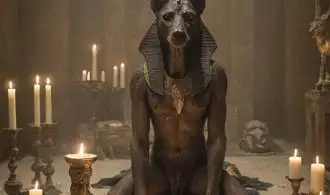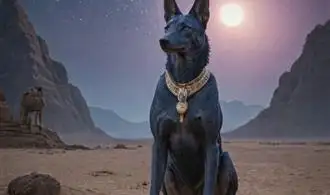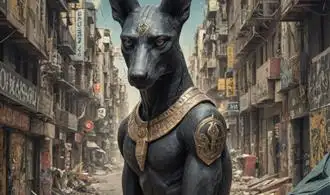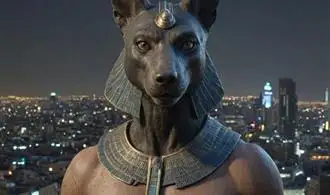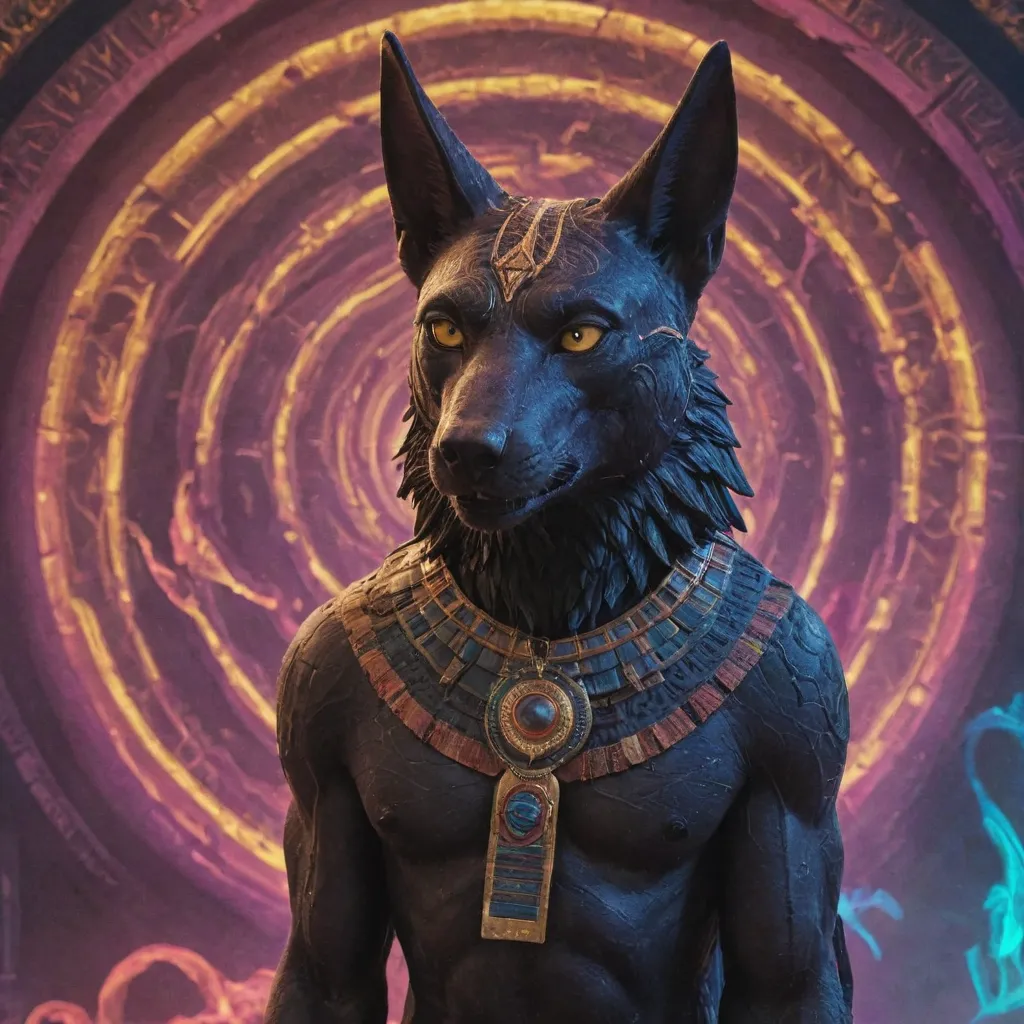
The Rise of Anubis in Ancient Egyptian Mythology
Anubis, the jackal-headed deity, holds a revered place in the pantheon of ancient Egyptian mythology. As the god of embalming and the afterlife, Anubis played a crucial role in the complex belief system that guided the ancient Egyptians' journey through the hereafter. The ascension of Anubis as a central figure in Egyptian mythology can be attributed to the profound significance he held in the rituals and practices surrounding death and the afterlife.
One of the primary reasons for Anubis' prominence was his role as the guardian of the dead and the embalming process. As the protector of the mummification ritual, Anubis ensured the proper preservation of the deceased, a vital step in ensuring a successful transition to the afterlife. The Egyptians believed that Anubis would guide the soul of the deceased through the treacherous underworld, guarding them against the dangers and obstacles they might face.
The association of Anubis with the underworld and the afterlife also contributed to his rise in importance. As the god who presided over the weighing of the heart ceremony, Anubis determined the fate of the deceased. This ritual, in which the heart of the deceased was weighed against the feather of truth, was a critical moment in the judgment of the soul. Anubis' role as the arbiter of this judgment solidified his status as a powerful and influential deity in the Egyptian belief system.
Moreover, the depiction of Anubis as a jackal-headed figure held deep symbolic meaning for the ancient Egyptians. The jackal, a scavenger animal known to prowl near cemeteries, was believed to have a strong connection to the realm of the dead. This association with the underworld and the afterlife further cemented Anubis' role as the guardian and protector of the deceased.
The worship and veneration of Anubis extended beyond the realm of the dead and into the daily lives of the ancient Egyptians. Egyptians would often invoke Anubis' protection and guidance in their everyday activities, seeking his blessings and intercession in matters related to the afterlife. This widespread devotion to Anubis contributed to his rise as one of the most significant deities in the ancient Egyptian pantheon.
The Role of Anubis in the Afterlife Journey
Anubis, the jackal-headed Egyptian deity, plays a crucial role in the afterlife journey of the deceased. As the god of embalming and the protector of the dead, Anubis was responsible for guiding the souls of the departed through the complex and treacherous realms of the afterlife.
One of Anubis's primary duties was the mummification process. He was believed to oversee the embalming rituals, ensuring the preservation of the physical body. This was essential, as the Egyptians believed the soul could only return to the body after death. Anubis's involvement in this process was seen as a guarantee that the deceased would have a safe and successful transition to the afterlife.
Beyond the mummification, Anubis played a crucial role in the weighing of the heart ceremony, a pivotal moment in the afterlife journey. During this ritual, the deceased's heart was weighed against the feather of truth, representing the measure of their moral and ethical conduct in life. Anubis was responsible for overseeing this judgment, ensuring the fairness and impartiality of the process.
If the heart was found to be pure and in balance with the feather, the deceased was granted passage to the afterlife. However, if the heart was found to be heavier, it was devoured by the monstrous creature Ammit, resulting in the soul's annihilation. Anubis's role as the guardian of this process was essential, as it determined the fate of the departed.
Furthermore, Anubis was believed to guide the souls of the dead through the dangerous and treacherous realms of the afterlife. He was responsible for leading the deceased through the underworld, protecting them from the various dangers and obstacles they might encounter along the way. This included navigating the perilous rivers, crossing the desert expanse, and facing the judgment of the gods.
Rituals and Offerings to Anubis for Protection
Anubis, the ancient Egyptian god of the dead, is revered for his ability to guide and protect the deceased on their journey through the afterlife. As the patron deity of the embalming process and the underworld, Anubis plays a crucial role in ensuring the safe passage of the soul. For those seeking Anubis' divine protection, there are specific rituals and offerings that can be performed to invoke his favor.
One of the most important rituals associated with Anubis is the Opening of the Mouth ceremony. This ritual was believed to restore the deceased's ability to speak, breathe, and receive sustenance in the afterlife. The ceremony involved the use of special tools, incantations, and the presence of a designated priest or priestess. By performing this ritual, the individual was believed to be granted Anubis' protection and the ability to navigate the challenges of the underworld.
Another significant ritual is the Weighing of the Heart ceremony, which took place during the judgment of the dead. During this process, the deceased's heart was weighed against the feather of Ma'at, the goddess of truth and justice. If the heart was found to be pure and righteous, the individual was granted access to the afterlife. Offering prayers, amulets, and other offerings to Anubis during this ritual was believed to increase the chances of a favorable outcome.
In addition to these formal rituals, there are various offerings and symbolic gestures that can be made to honor Anubis and seek his protection. These include:
- Presenting offerings of food, water, and incense at shrines or altars dedicated to Anubis
- Wearing amulets or jewelry featuring the jackal-headed image of Anubis
- Reciting prayers or hymns to Anubis, asking for his guidance and protection
- Engaging in meditative practices or visualizations to connect with the energy and presence of Anubis
- Incorporating the symbol of Anubis, such as the ankh or the jackal, into personal devotional items or artwork
It is important to note that the specific rituals and offerings may vary depending on the cultural and historical context, as well as the individual's personal beliefs and practices. Consulting reputable sources or working with experienced practitioners can help ensure the proper and respectful observance of these rites.
Anubis in Modern Spiritual and Cultural Practices
Anubis, the ancient Egyptian god of the dead, has maintained a strong presence in modern spiritual and cultural practices. As an enduring figure of reverence and protection, Anubis continues to captivate individuals seeking guidance and guardianship in the realm of the afterlife.
In contemporary Pagan and Wiccan traditions, Anubis is often invoked as a powerful deity to aid in the transition between life and death. Many practitioners incorporate Anubis-inspired rituals and symbols into their spiritual practices, seeking his counsel and blessings during significant life events, such as funerals, ancestral veneration, and rites of passage.
Moreover, Anubis has found a place in various forms of modern divination. His association with the afterlife and the underworld has made him a popular figure in tarot, oracle, and other esoteric card readings, where he is believed to offer insights into the mysteries of the unseen realms and the journey of the soul.
Beyond the spiritual realm, Anubis has also permeated popular culture, becoming a recognizable icon in contemporary art, literature, and media. From the silver screen to the pages of graphic novels, Anubis is often depicted as a mysterious and awe-inspiring figure, embodying the dualities of life and death, and the complexities of the human experience.
In the realm of personal spiritual practices, Anubis is often invoked for protection, guidance, and purification. Devotees may create altars, engage in meditations, or wear Anubis-themed jewelry or amulets to forge a connection with the deity and seek his blessings. Some individuals also incorporate Anubis-inspired imagery and symbology into their own artistic and creative expressions, further reinforcing his enduring influence.

